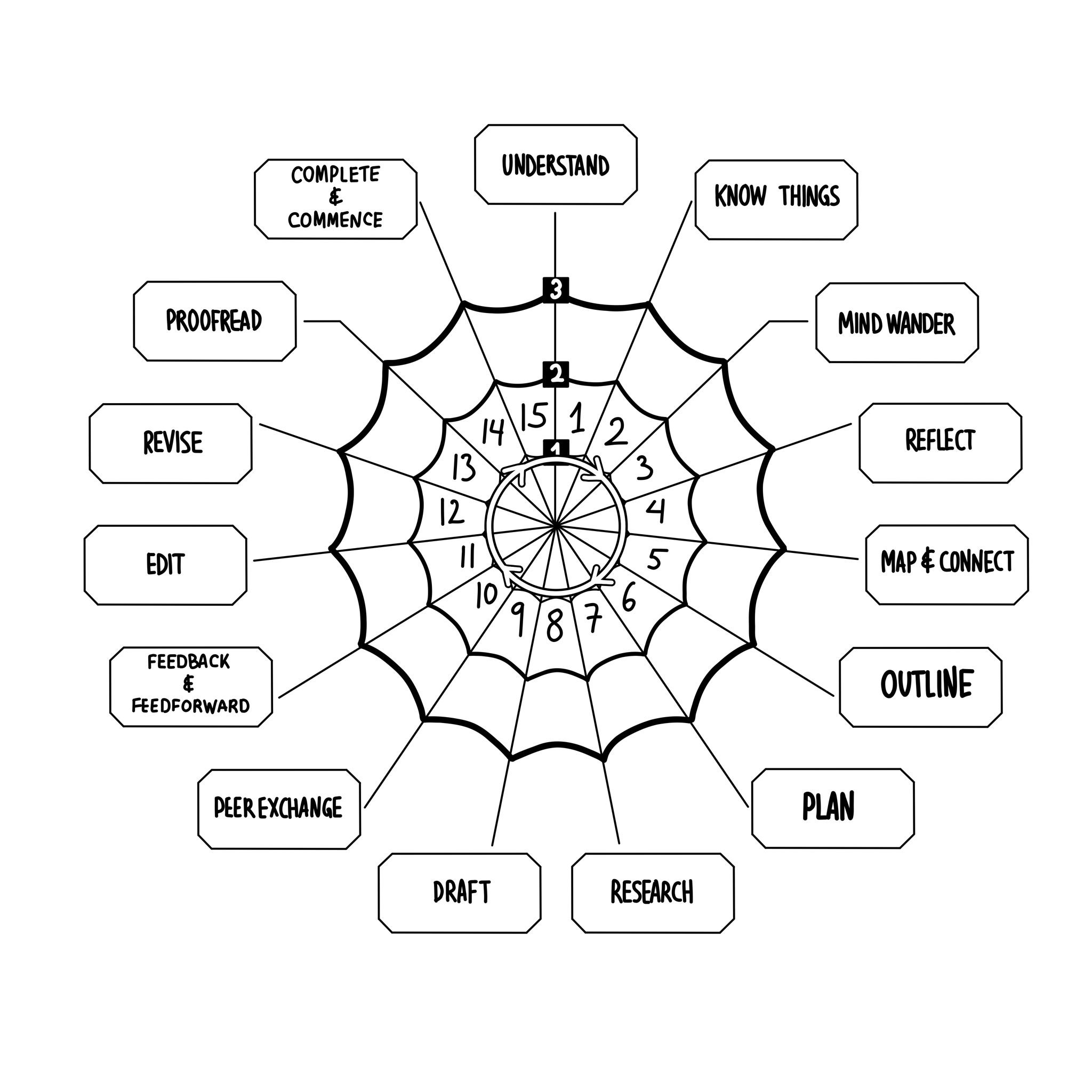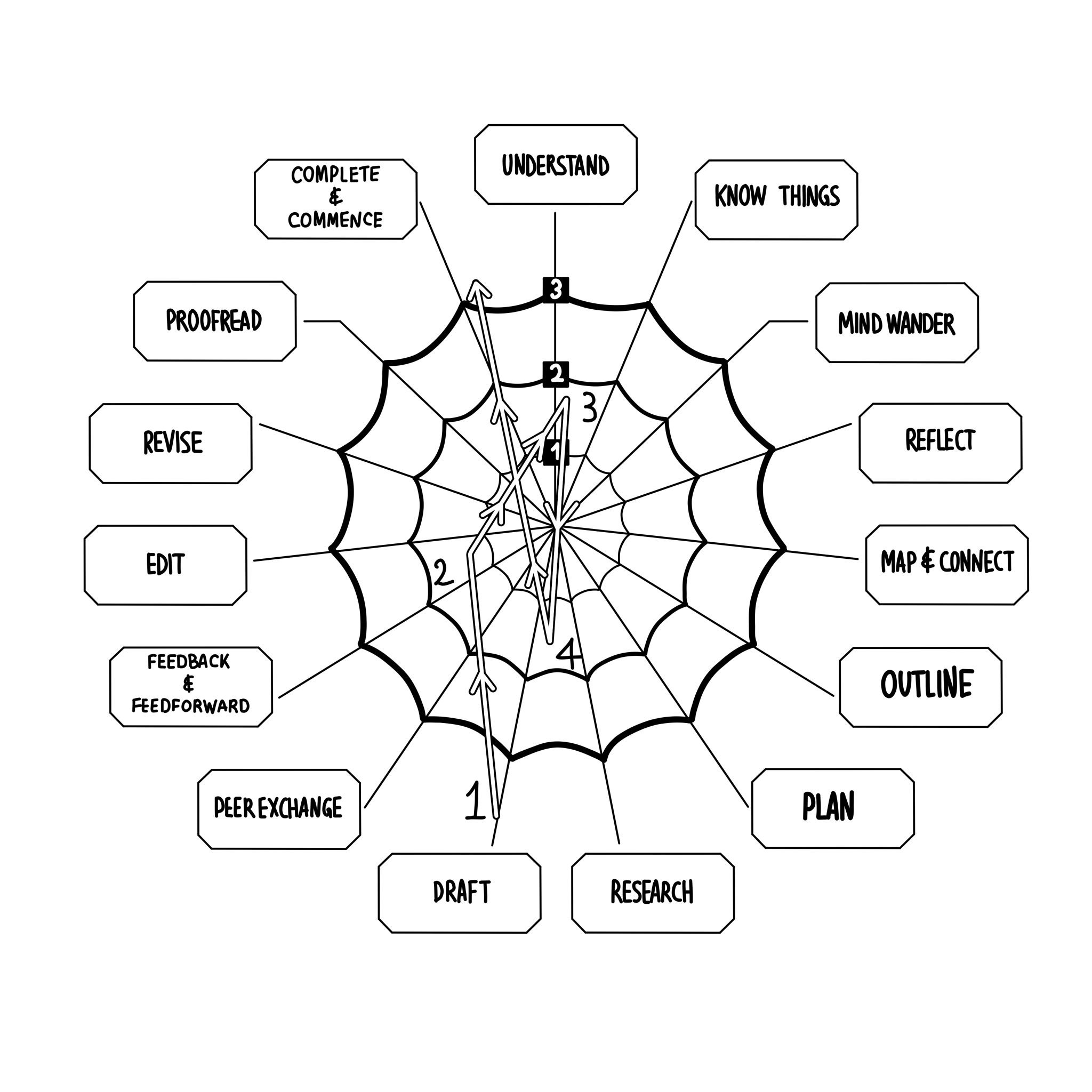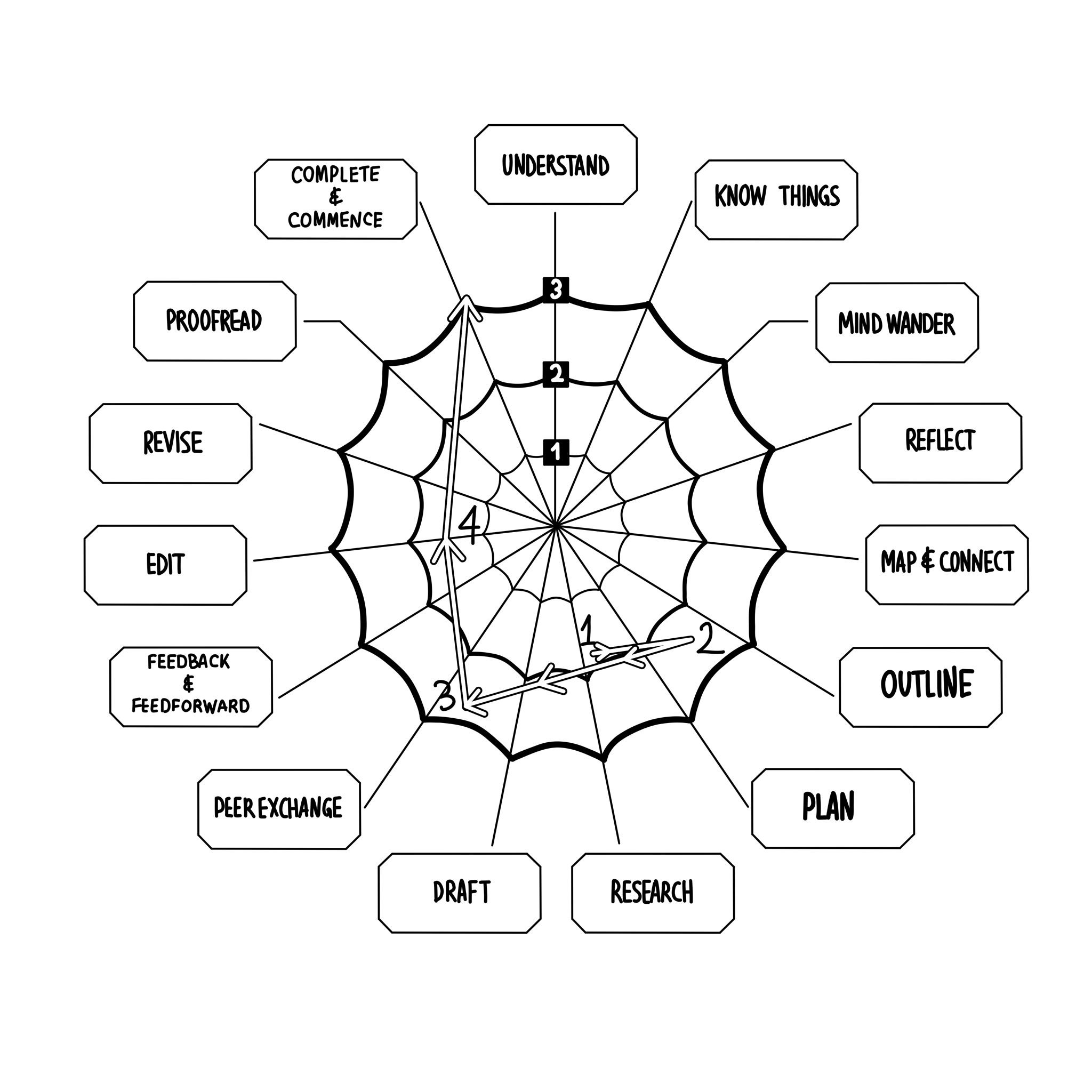Choose your starting point.
The writing process is complex. We have identified 15 different stages of writing, which are represented in a circle because any stage can be the starting point in writing. Different people will start at different stages.
One person may start with understanding.
In this example, a writer progresses in order through each stage.
One person may start with drafting.
In this example, a writer drafts then receives feedback before realizing that they need to check their understanding of the assignment, leading them to then begin to do research.
Another person may start with researching.
In this example, a writer first conducts research into a new topic, creates an outline, seeks a peer’s input, then edits their work so far.
Each writer has a unique thinking-writing process, which may also vary from project to project. More (or less) time in one writing stage versus another could lead to superior results for that person.
Choose your activities.
The 15 stages of the writing process are each associated with several activities. Writers are encouraged to review the options and do as many activities as they feel necessary to dominate the skill sets related to the stage.
These activities are meant to make many of the invisible processes of thinking more visible. These activities are not meant to be judged (or graded). The activities are designed to help writers and their teachers “see” how people develop skills.
By making the thinking-writing process visible, the writer (and the teacher) can assess what could be done better the next time, based on the path taken and the product achieved.
Use rubrics to assess
A spider rubric helps the writer to tabulate the number of activities completed, reflect on easiest and hardest stages, and think about how to improve the next time.
A product-process-progress-potential rubric creates a formative and summative assessment of the writing project.
This extends the evaluation process to being a planning process.






